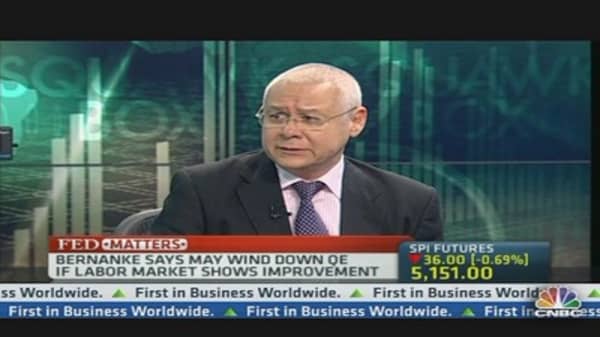A perfect storm of factors including weak China data, confusion over Ben Bernanke's comments, surging Japanese bond yields and a strengthening yen contributed to the moves, analysts said.
"It doesn't matter the asset class, traders are out to play today in a big way, with the Nikkei trading in a 997 point or 6 percent range! It's been an incredible move, and anyone wanting to see a full-scale liquidation of a hugely over crowded trade will use this as textbook," said Chris Weston, market strategist at IG in a note.
10-year Japanese government bond (JGB) yields jumped as high as 1.002 percent, their highest level in a year, as debt markets globally sold off on comments from the Federal Reserve chief overnight that fueled worries about an early unwinding of the central bank's asset-buying program.
As a result, Japanese banking stocks were sold-off across the board with Shinsei Bank leading losses by 14 percent.
(Read More: Japan Bond Yields Spike – 10-Year Now at 1%)
"Japanese banks sit on a huge amount of government bonds and if yields are moving up too quickly, the asset quality of the banks is coming under pressure and you've got a negative impact on the economy," Weston said.



